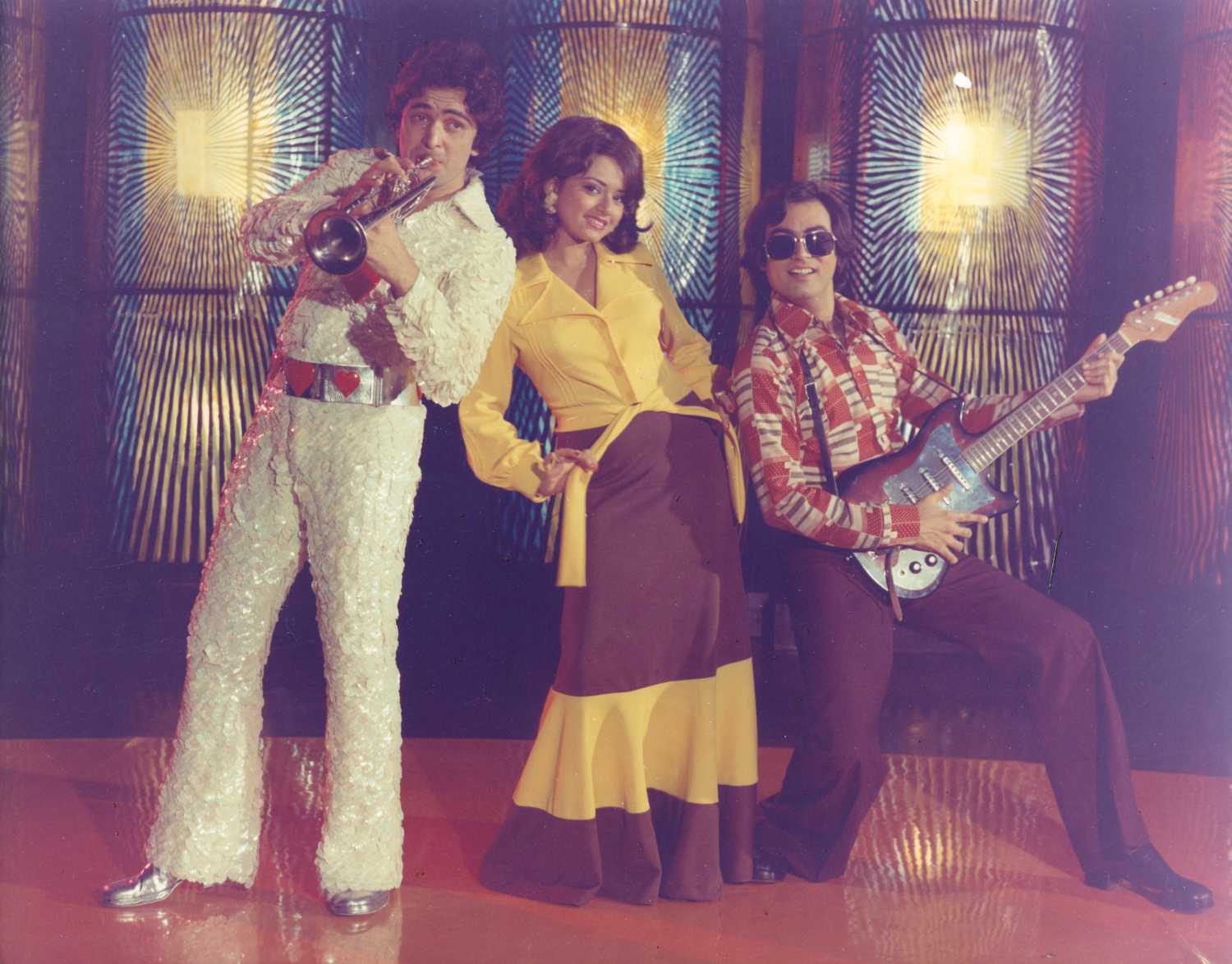On the occasion of the film's release on this day (25 August) 40 years ago, we revisit this Nasir Husain classic.
40 years of Hum Kisise Kum Naheen: Nasir Husain's blockbuster still has the beat
Mumbai - 25 Aug 2017 9:00 IST


Sonal Pandya
Filmmaker Nasir Husain’s Hum Kisise Kum Naheen remains a fond memory in most Hindi film fans’ memories. Buoyed by popular soundtrack by RD Burman, it is likely one remembers the film from Rishi Kapoor dancing around the stage in ‘Bachna Ae Haseeno’.
While Rishi was one of the film’s stars, Hum Kisise Kum Naheen also featured Husain’s nephew Tariq Khan and Kaajal Kiran, who made her debut in the film. The complicated plotline involved stolen diamonds, mistaken identity, and childhood sweethearts pining away for each other.
Rishi played Rajesh, whose dying father (Murad), returning from Kenya, passes off the diamonds which represents all the family’s wealth to a stranger, Seth Kishorilal (Kamal Kapoor) who then loses them in a mysterious chase by nefarious henchmen. Kishorilal hires a quartet of lookalike bald men as his daughter Kajal's bodyguards.
It’s good thing because a mysterious old man Saudagar Singh (Amjad Khan) and Rajesh conspire together to take back the diamonds. Meanwhile, Kishorilal’s old friend Ram Kumar (Om Shivpuri) is looking for him to fulfil their old promise to wed their children Sanjay (Tariq) and Kajal (Kaajal Kiran).

Written by Sachin Bhowmick, Hum Kisise Kum Naheen moves along a steady pace, never boring you. The iconic song 'Bachna Ae Haseeno' arrives within the first 10 minutes of the film’s start. Rajesh is a singer while Sanjay is also musically inclined — he plays the guitar and the two have a memorable face-off in a competition titled the All India Pop Contest.
Remembering RD Burman's chart-busting music in Hum Kisise Kum Naheen
The musical medley has four top songs all written by Majrooh Sultanpuri (‘Chand Mera Dil’, ‘Aa Dil Kya Mehfil Hai Tere’, ‘Tum Kya Jano Mohabbat Kya Hai’ and ‘Mil Gaya Hum Ko Saathi’) from the soundtrack all within the space of 10 minutes on a stage featuring a large eye (similar to Husain’s previous 1966 production Teesri Manzil). At the time, when Western music like ABBA was popular, RD Burman’s compositions held their own.
Author Akshay Manwani, who wrote Music Masti Modernity: The Cinema of Nasir Husain, said in the book, “The film is yet another true blue musical where songs are used to advance and resolve the narrative.” Like Husain’s previous release, Yaadon Ki Baaraat (1973), the film’s music is an essential part of its storytelling.
Burman used all the top singers on the album from Kishore Kumar to Asha Bhosle. He himself sung the song ‘Tum Kya Jaano Mohabbat Kya Hai’ and gave Mohammed Rafi four important songs to sing in the era of Kishore Kumar. Rafi won the National and Filmfare awards for the song ‘Kya Hua Tera Vada’. Surprisingly, it’s his only National Award.
Hum Kisise Kum Naheen also had a special appearance by Zeenat Aman who played Rajesh’s girlfriend Sunita. She was a part of the title song, ‘Hai Agar Dushman (Hum Kisise Kum Naheen)’ a special qawwali that arrived in the middle of the film. There too, the song stood out, just like the one-of-a-kind medley that came earlier.
Manwani wrote, “The song is another example of Husain’s aesthetic sensibilities leaning towards a certain spectacle. This can be seen in the rather Western-looking, pink, ruffle-front tuxedo shirts and red vests worn by Rishi and the junior artistes. Their performance takes place on a large stage lit by several chandeliers, with a kaleidoscopic-patterned ceiling. All this made the 'Hum Kisise Kum Naheen' qawwali, also the film’s title song, a statement in grandeur and plush production qualities.”
Besides its unforgettable song sequences, Hum Kisise Kum Naheen, the last of Husain’s last big hits, is a rather enjoyable watch. Though there are lot of little details to remember, characters pop and leave, but at the end, it reaches its satisfying conclusion. Even a throwaway dialogue like Rajesh saying he knows how to fly a helicopter becomes important by the end.
The film’s good run didn’t help Kaajal Kiran or Tariq who went on to work in lesser known films. It did certainly help Rishi who was also coming off the success of Kabhi Kabhie (1976) and Amar Akbar Anthony (1977). But the eventual winner was director Husain who proved once again, why he was the master of the musical.





